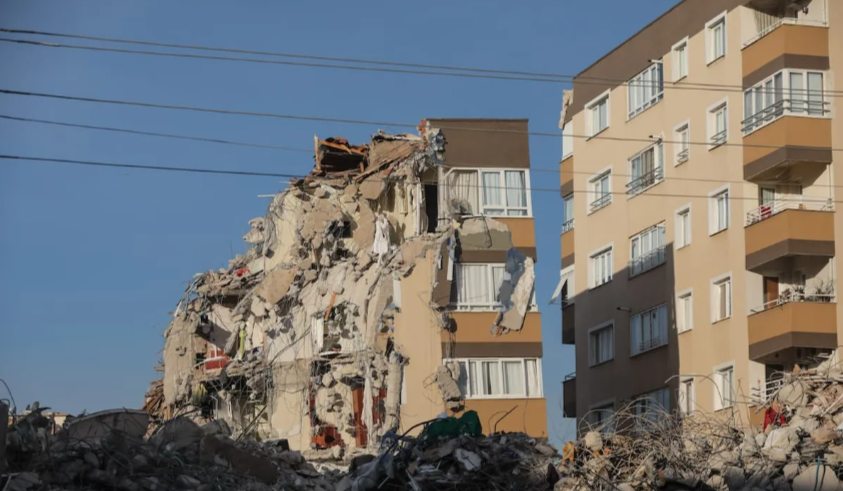In southeast Turkey and Syria, buildings were knocked down by a 7.8 magnitude earthquake early Monday morning. Many casualties are expected. The number of deaths in Turkey initially reported was at least 10. There has been immediate dispatch of search and rescue teams to areas affected by the earthquake, according to Turkish President Recep Tayyip Erdogan on Twitter.
According to him, “We hope that we will be able to heal as quickly as possible from this tragedy and with the least amount of damage,” he wrote. Interior Minister Suleyman Soylu said that at least six aftershocks occurred as a result of the earthquakes and that he urged people to avoid entering damaged constructions because of the risks they faced.
A Syrian Civil Defense spokesperson from the opposition, who is based in northwest Syria, described the situation there as “disastrous”, adding that entire buildings in the rebel-held region were destroyed and people were trapped in the rubble. Civil defense officials urged the public to evacuate buildings so they could gather in open spaces.
According to the U.S. Geological Survey, the quake with a focal point of up to 18 kilometers (11 miles) deep, was centered about 33 kilometers (20 miles) from Gaziantep, the provincial capital and the largest city in Turkey, and a strong aftershock quake measuring 6.7 was heard about 10 minutes after the initial quake. There was an earthquake measuring 7.4 magnitudes in the town of Pazarcik, located in the province of Kahramanmaras, according to Turkey’s Disaster and Emergency Management Agency, AFAD.
There have been at least ten confirmed deaths in Sanliurfa as of last night, according to Governor Salih Ayhan. Haber Turk television reported that several buildings collapsed in the neighboring provinces of Malatya, Diyarbakir, and Malatya. There were no immediate reports on whether there were any fatalities. Some buildings have collapsed in two cities of Syria: Aleppo in the north and Hama in the south, according to Syria’s state media.
There was a shaking in Damascus that sent many people running down the streets in fear as the buildings shook. During the earthquake in Lebanon, residents were jolted from their beds for 40 seconds as buildings were shaken for a short period of time. Many people who lived in Beirut fled from their homes and took to the streets or drove to a safe distance from their homes. A snowstorm is expected to continue throughout the Middle East until Thursday in addition to the earthquake that hit on Monday.



